Money = Time, but the crypto space is different.
Author: Route 2 FI
Translated by: Deep Tide TechFlow
Today, I want to talk about a topic I often ponder: the balance between time and money.
You may have heard an interesting discussion—“Is 10 million dollars enough for a comfortable retirement?” In my view, such discussions are somewhat ridiculous because the numbers mentioned on Twitter seem unrealistic in most parts of the world. I even believe that just one-tenth of that amount is enough for you to live quite well in most places.
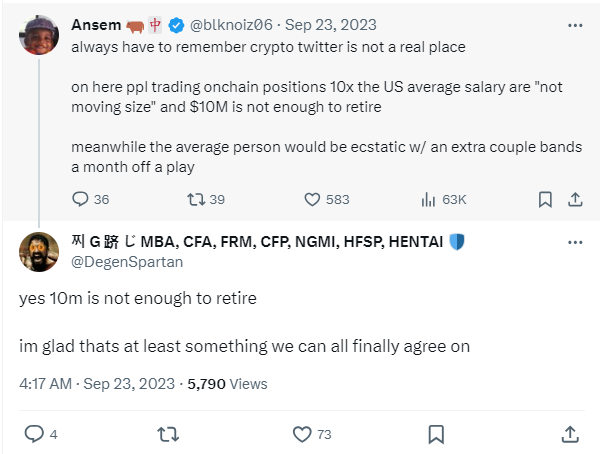
Money is a very interesting topic; it is not as simple as it seems. We earn money through work and use it to purchase goods and services. However, the value of money can vary depending on how it is used and the time involved.
Whether you earn your first dollar or your first million dollars, its purchasing power is essentially the same. But depending on how you use that money, the additional comfort or happiness it brings can vary greatly. Ultimately, what we buy with money is merely a means to achieve the ultimate goal of happiness.
However, the satisfaction or actual utility derived from the first million dollars is far less than that from the first dollar. In fact, once money reaches a certain level, each additional dollar may even bring some negative effects, such as more complexity, anxiety, and dependence on the next income.
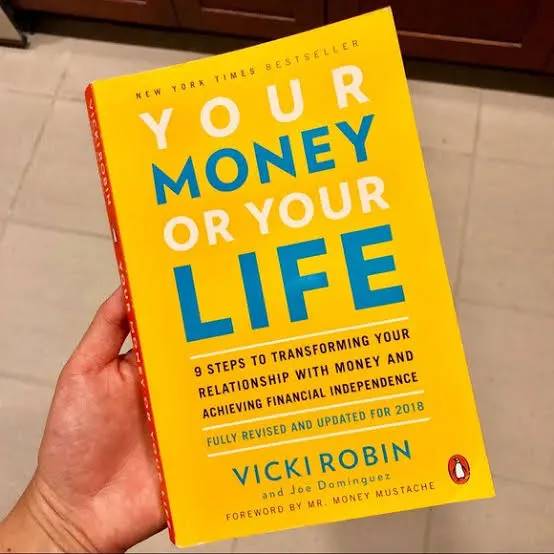
Despite the somewhat embarrassing title, the book Your Money or Your Life was a revelation for me.
This book popularizes an interesting concept and completely changed my way of thinking, ultimately leading me into the world of crypto Twitter.
You may have seen the chart below, but it is still worth mentioning because it illustrates a key issue well:
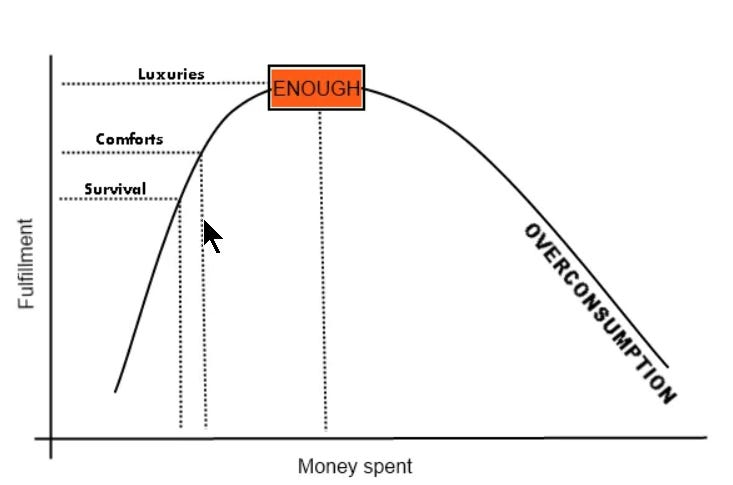
As spending increases, happiness does indeed rise, but this increase has its limits.
This limit varies from person to person. The initial dollars often bring more happiness because they are usually spent on more useful and important things.
However, once spending reaches a certain critical point, additional expenditures have almost no effect on increasing happiness.
Money = Time, but the crypto space is different
Money is actually a manifestation of our time. It is a way to store value. We exchange time and energy (our life force) for money, hoping to use that money in the future to acquire goods or the labor of others.
For most people, the relationship between time and money is linear. After completing our studies, we exchange X time for Y money:
1X time = 1Y money.
While this is not always the case, it is generally true, especially when we view work from an annual perspective. For some, as they get promoted or change positions, this linear relationship may exhibit an upward curve or change in slope.
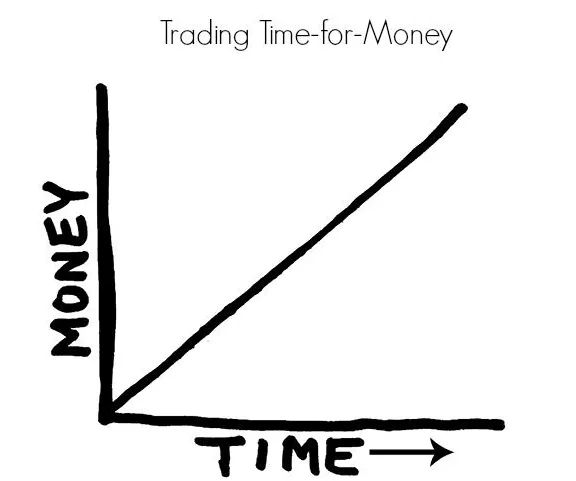
Most people are satisfied with this and believe that time equals money.
But in the crypto space, we know that this is not the only truth.
A few years ago, when I decided to pursue early financial freedom, my understanding of money was at this stage. However, over time, the more we exchange time for money, the lower the cost-effectiveness of that exchange becomes.
Time is limited. As time goes on, it becomes increasingly precious because we have less and less of it left. Every day, we are moving closer to the end of life. While this may sound a bit pessimistic, it is the reality.
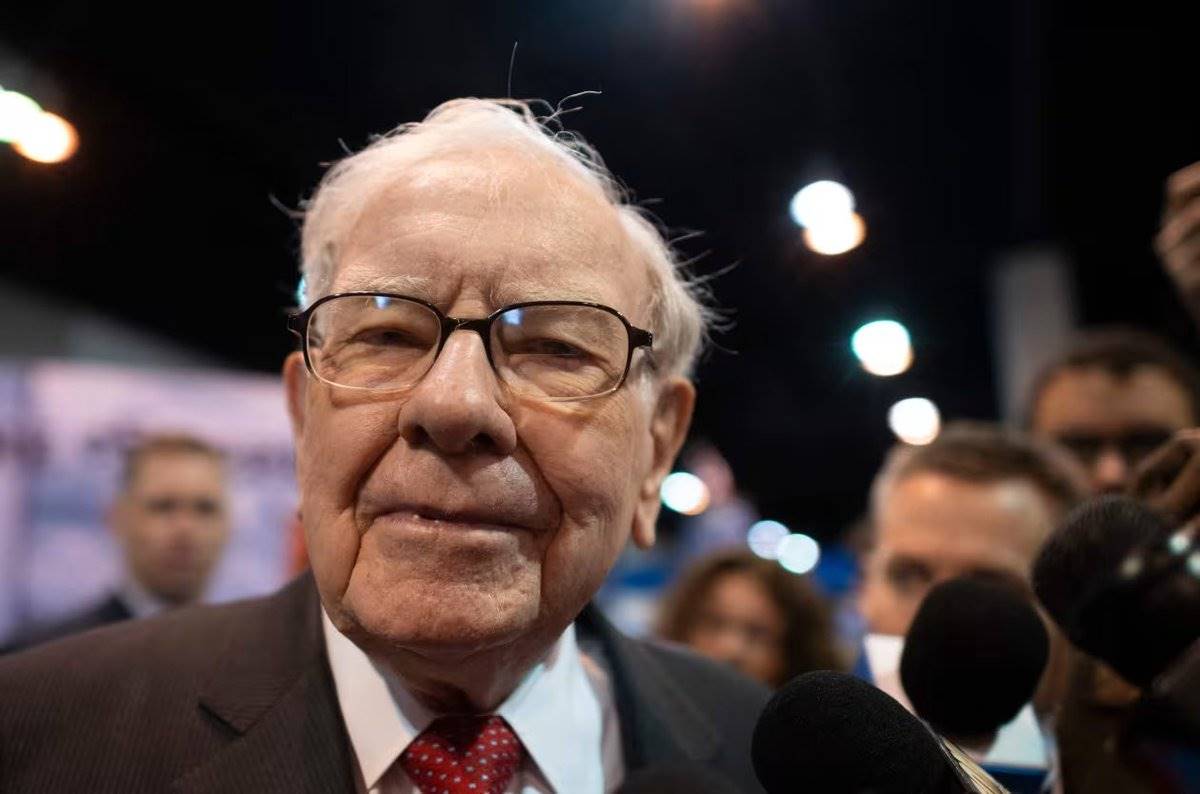
How much is your time worth when you are lying in a hospital bed?
How much would you be willing to pay to live a few more days? Would you be willing to swap places with 93-year-old Warren Buffett? He has 100 billion dollars, but he may not have much time left.
Would you choose to continue working, or pursue other aspects of life?
I once faced such a choice. After a bull market ended, I seriously considered whether to exit the crypto space.
In the end, I chose a compromise. The relationship between time and money is non-linear; as the marginal utility of each additional dollar decreases, the significance of money to me also diminishes. While I am not as wealthy as those crypto OGs, I am content, and I believe that is the most important thing.
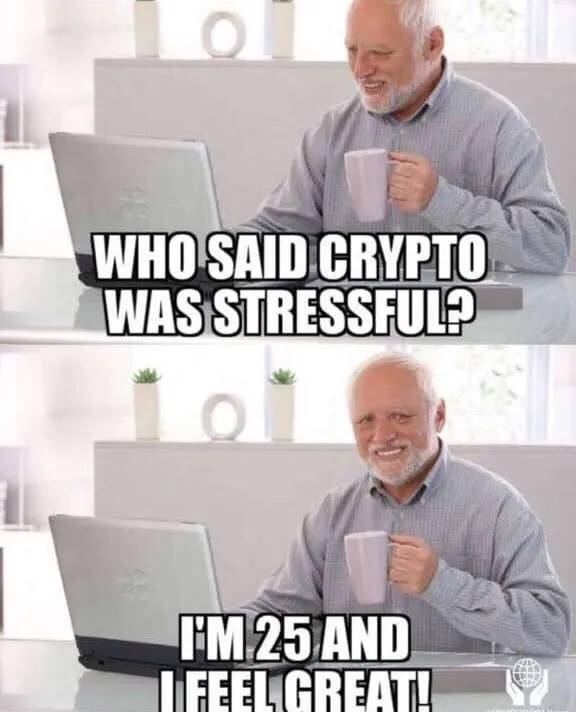
I do not want to be the kind of person bound by money. Perhaps I need to stop frequent trading and focus on long-term investments (but in this industry, what counts as long-term investment?).
Looking back, I used to put funds in index funds in the stock market and only check the market once a month. Now, I might check the market up to 50 times a day.
Exchanging time for money is not inherently right or wrong; it is merely a choice, and this choice brings different consequences.
I find that most people play this game for too long.
Some people truly have no choice, but most do have options.
I believe this should be the action plan for most people:
Calculate how much you need: Estimate using “monthly expenses × 12 months × 25”.
Think about what truly brings happiness and how much money is needed to meet those needs.
Cut all expenses that do not bring joy.
Use the saved money to buy yourself freedom.
Use that freedom to do what you love or reduce the work you dislike.
If you are still working, regularly assess whether this exchange is worth it. If not, return to step 1 and repeat until satisfied.
If you cannot meet the needs of step 1, you need to find ways to increase your income.
Forget the traditional linear development path; leverage your strengths to achieve exponential growth while building a personal brand.
In your youth, dare to take well-considered risks, especially those asymmetric opportunities where potential gains far exceed losses. Spend time learning, expand your network on platforms like Twitter, and gain valuable experience in the crypto space through internships.
Find your niche, strive to become a top figure in that field, and seek meaning in work that can directly change lives.
People in the crypto space: The trade-off between money, time, and happiness
Don’t get me wrong; making money is a good thing, but finding balance is equally important. I know I have crossed this limit multiple times, almost leading to depression.
The current market conditions make me feel that a day is simply not enough. There are too many things I want to do, but not enough time to accomplish them. This state also puts pressure on me, especially when trading and holding large overnight positions, affecting my sleep.
I am not sure if I want this kind of life to become my norm. I know I can alleviate it by limiting work hours, but facing a 24/7 market and the fear of missing out makes it easier said than done.
If I could do it all over again, I would optimize my life like this:
If I could go back to 18, I would try to reduce living costs to nearly 0 and seek a marketing job in the crypto space or become a Discord moderator. I would accumulate experience, save money, invest, and strive to make a breakthrough within two years. If I failed, then I would choose to go to college.
Since quitting my 9-to-5 job four years ago, I have essentially just replaced it with more crypto-related work.
I thought this was freedom, but that is not the case. Don’t get me wrong; my current lifestyle is much better than before, but I still hope to optimize further.
The last thing you want to see is having a lot of wealth but no friends, an unhealthy lifestyle, and nothing to look forward to.
When you finally succeed in the crypto space, you may find that it is not what you truly wanted.
You have money, but you are still the same person.
The goals in life are not just about money; otherwise, it is easy to fall into confusion or even depression.
Final piece of advice
If you enter the crypto space just to get rich quickly, then focus on high-risk speculation. In that part of the field, there is no meaning; everything is just about money.
But if you want to find meaning, growth, strength, and true value, connect with those willing to play the long game. Or, create content that allows them to find you.
免责声明:本文章仅代表作者个人观点,不代表本平台的立场和观点。本文章仅供信息分享,不构成对任何人的任何投资建议。用户与作者之间的任何争议,与本平台无关。如网页中刊载的文章或图片涉及侵权,请提供相关的权利证明和身份证明发送邮件到support@aicoin.com,本平台相关工作人员将会进行核查。




